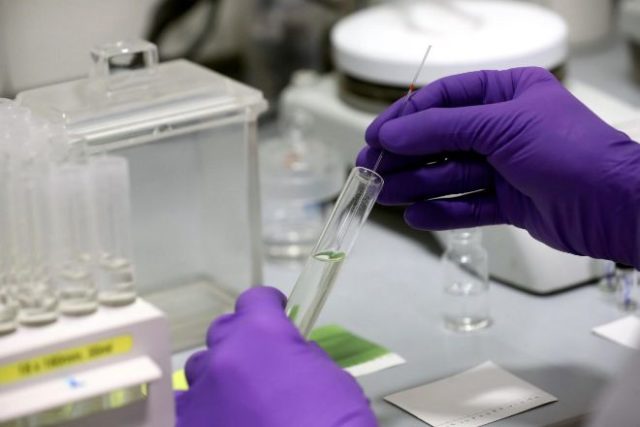Between 70% and 80% of the national population would have to get infected with the SARS-CoV-2 virus that causes COVID-19 in order to generate a herd immunity that works as a protective barrier against the disease. This was reported by Angie Cervantes, microbiologist and member of the National Laboratory Team of the Costa Rican Social Security Fund (CCSS)
According to the specialist, to achieve herd immunity, it is necessary that a percentage greater than 80% of the population has been infected with the new coronavirus and have generated the necessary antibodies to repel the disease. As she indicated, in an initial stage, the virus begins to circulate among the population, generating a significant increase in the confirmed cases of COVID-19 infection, as it was observed in the country, in the first weeks following the first confirmed patient.
After the spike in infections, people with the disease will develop defenses against the virus, so that they will be increasingly immunized, reducing the risk of transmission to others who have not been infected. When a country manages to make more than 80% of the population generate antibodies after having been in contact with the virus, it is when it is determined that herd immunity was reached. “What is sought is that people who do not have risk factors are contagious and are generating antibodies so that the chances of infecting others who have risk factors are going down”, she explained.

Cervantes said that Costa Rica is far from being in this immunological phase because the amount that they have been able to get infected with the virus and developed antibodies is still very low. “It would be a romantic illusion to believe that the country has already reached this phase, it is still necessary for many people to get infected with the virus in the country. The drop in cases of COVID-19 in recent days is largely due to the restrictive measures that have been implemented in the country, however, the virus has not been controlled”, she said.
What is the implicit risk?
The specialist was emphatic that to achieve herd immunity people do not have to reduce protocol and care measures against the virus. “An exponential increase in cases remains a huge risk in the population, people could become seriously ill and hospital centers could start to collapse, generating an unsustainable health crisis”, she alerted.
Along these same lines, the Health Minister, Daniel Salas, affirmed that herd immunity is a consequence of an expanded circulation of the virus in a short time, so the risks of possible saturation of health services are greater. “The big problem with this is that among the people who get sick, there will be cases that will be serious, that will occupy respiratory assistance in an Intensive Care Unit (ICU)”, he clarified.
Even on the previous Monday, the authorities showed projections of infections to next July, indicating that if the current trend continues, with measures of social distancing and following the indications, the number of people with the virus would rise to 1,368 (by July 21st).
In the same projection it was indicated that if all measures are lifted and the population does not abide by the indications, the figure could jump to 52,628 cases and the number of deaths to more than 1,000.

